Excellent choice. They have been the hardest working kit on my truck for 2 years now!Unboxed some WKOR sliders. As soon as I remove AHC, then I can go forward with the installation. I like what I see.
View attachment 2506526
View attachment 2506528
Navigation
Install the app
How to install the app on iOS
Follow along with the video below to see how to install our site as a web app on your home screen.
Note: This feature may not be available in some browsers.
More options
Style variation
You are using an out of date browser. It may not display this or other websites correctly.
You should upgrade or use an alternative browser.
You should upgrade or use an alternative browser.
What have you done to your 100 Series this week? (49 Viewers)
- Thread starter SHUSH
- Start date
This site may earn a commission from merchant affiliate
links, including eBay, Amazon, Skimlinks, and others.
More options
Who Replied?Inner and outer tie rod on the driver side following the tips from inner tierod replacement 1hr step by step no pictures 1 bannana. I managed with a handful of large channel locks and a pipe wrench, but I probably won't do the job again without the proper tool for the inners.
Tomorrow...the passenger side (still without the proper tool). Then steaks, because turkey sucks
Tomorrow...the passenger side (still without the proper tool). Then steaks, because turkey sucks
awesomeissquid
SILVER Star
FYI the autoparts stores typically rent the tools and I know for a fact O'Reilly's carries the inner tool set #67178. Might help you out.Inner and outer tie rod on the driver side following the tips from inner tierod replacement 1hr step by step no pictures 1 bannana. I managed with a handful of large channel locks and a pipe wrench, but I probably won't do the job again without the proper tool for the inners.
Tomorrow...the passenger side (still without the proper tool). Then steaks, because turkey sucks
I have been looking for some. Where did you buy it?
Lamin-x .com Decent pricing and shipped quick.
Installed king ktrs-79 coil springs to get ahc pressure at rear down. Went from 9.4 to 7.4 in the rear fully loaded. May look to add spacers too - but I'll see how it rides when it's empty.
Looks excellent Jimmy!Finished off my 4x4Labs rear bumper build and damn it looks good! So happy with it! Matches my sliders and front bumper so well. Look at all that clearance!!
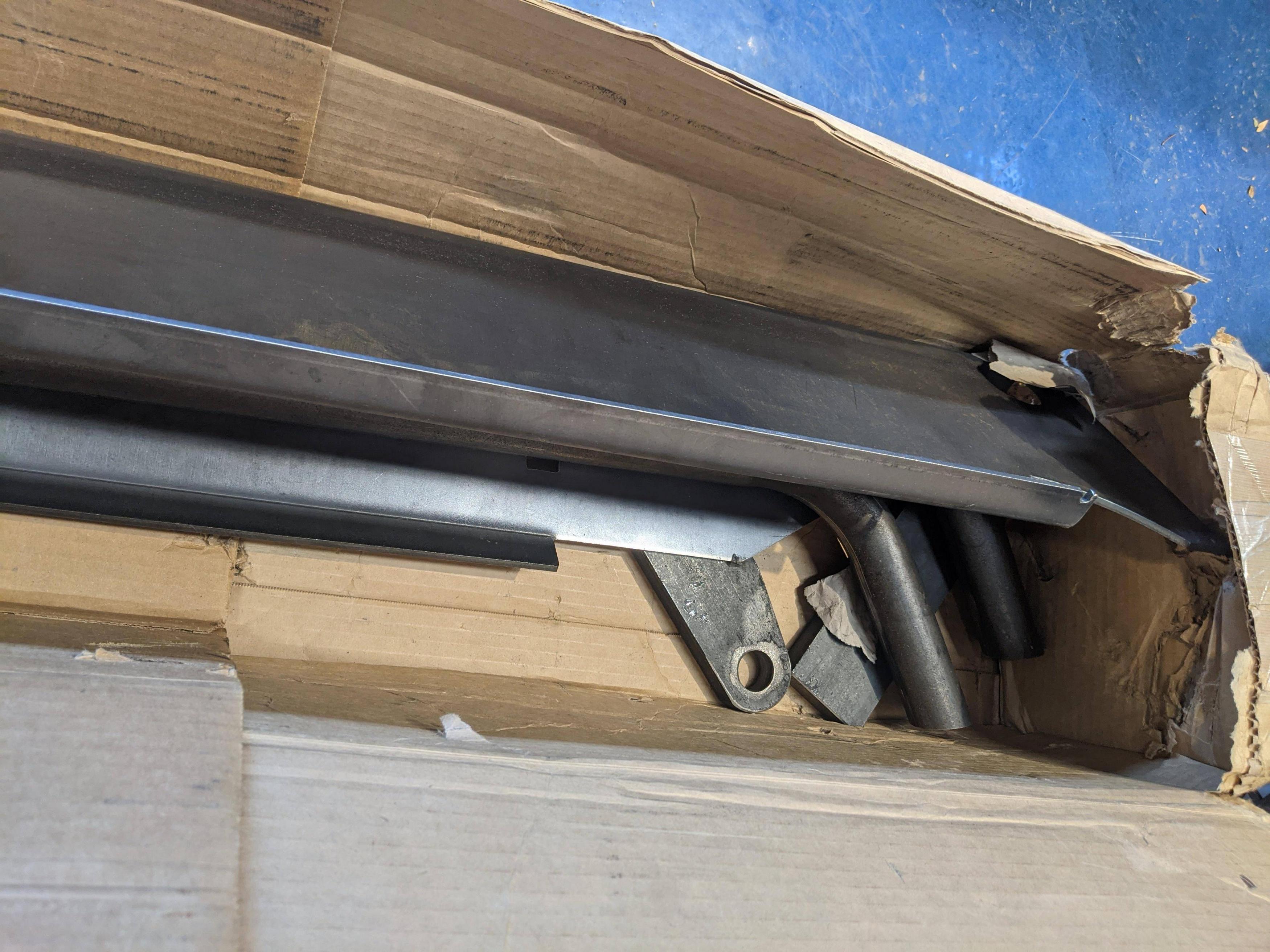
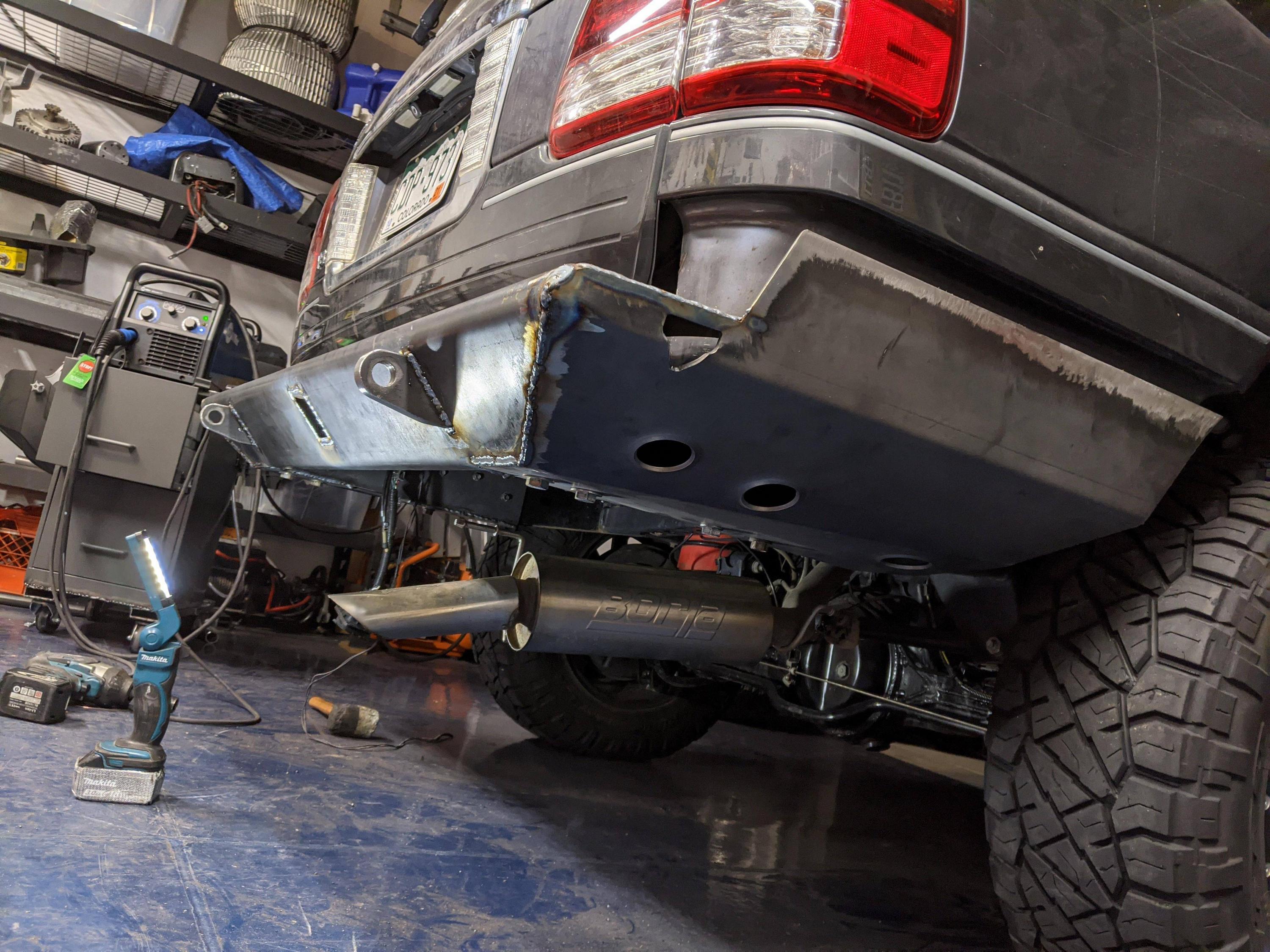
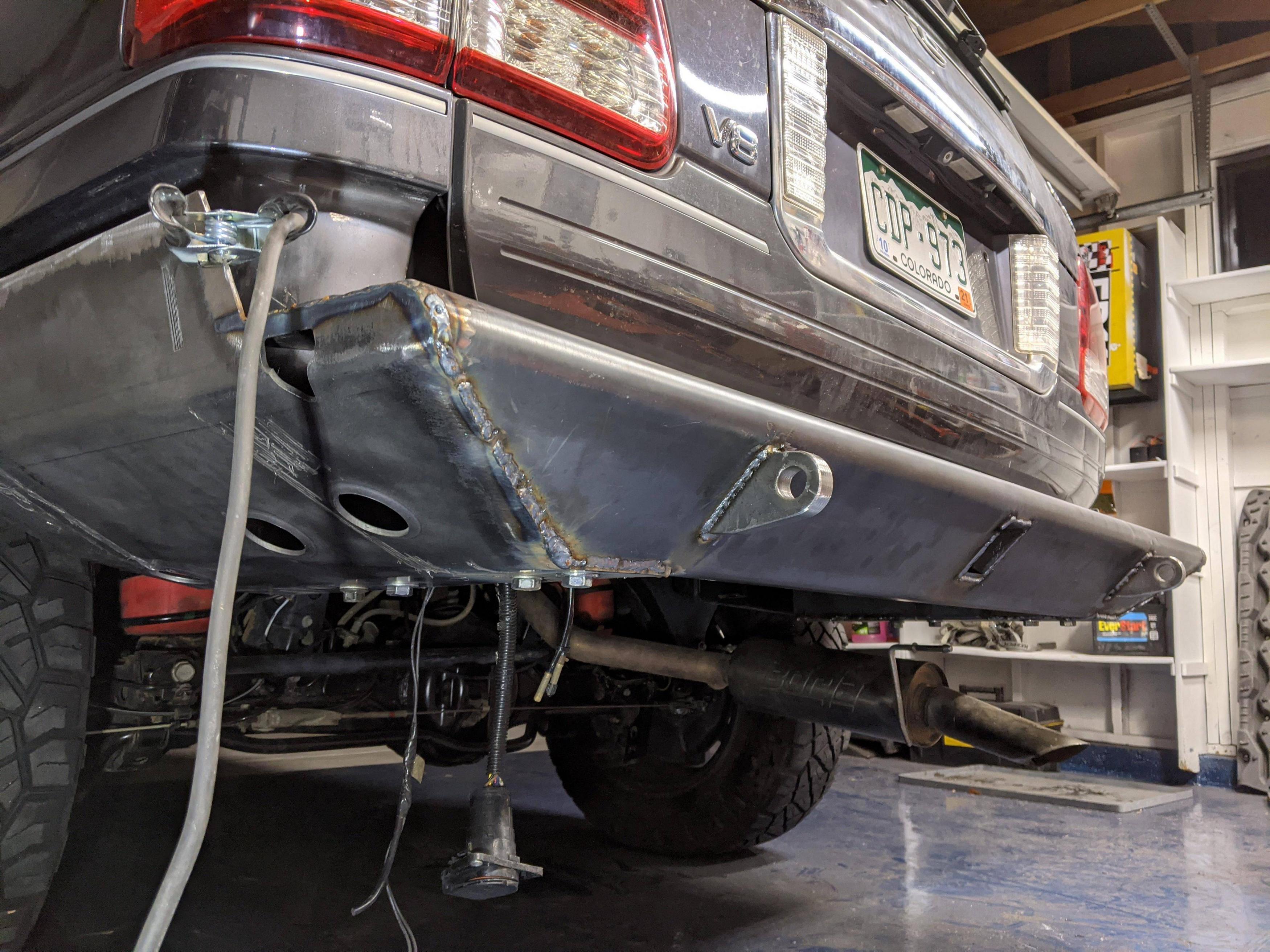
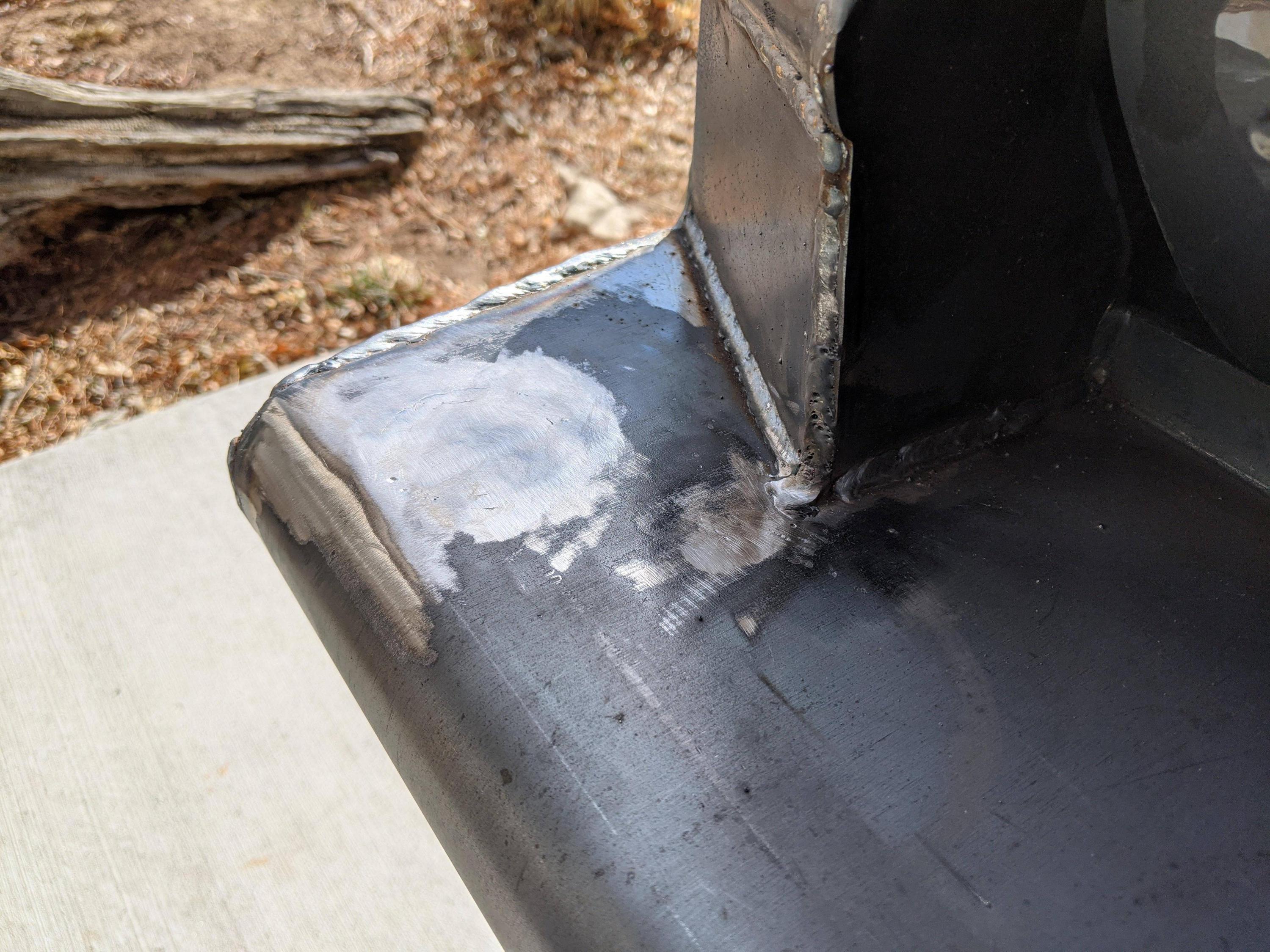

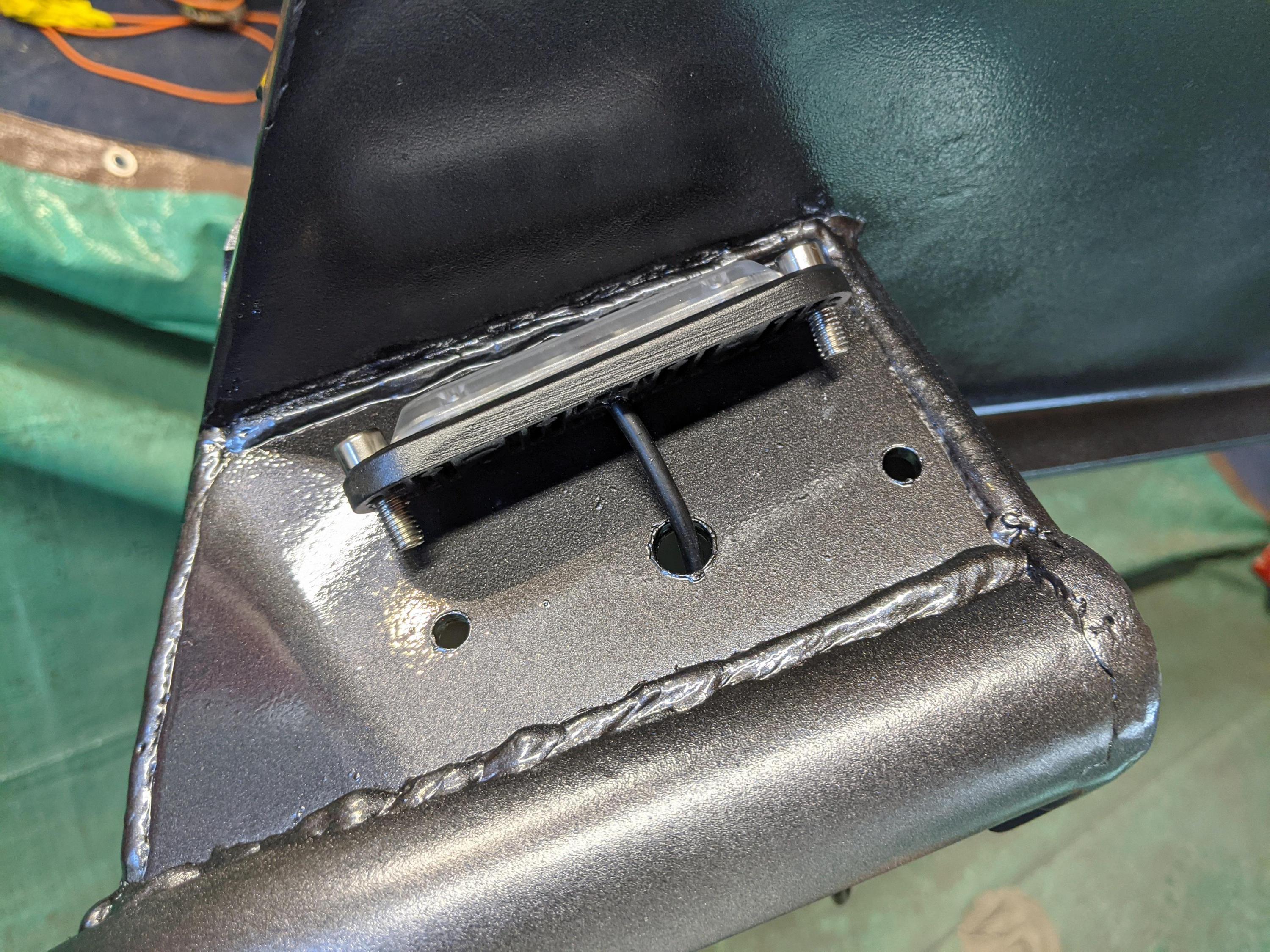
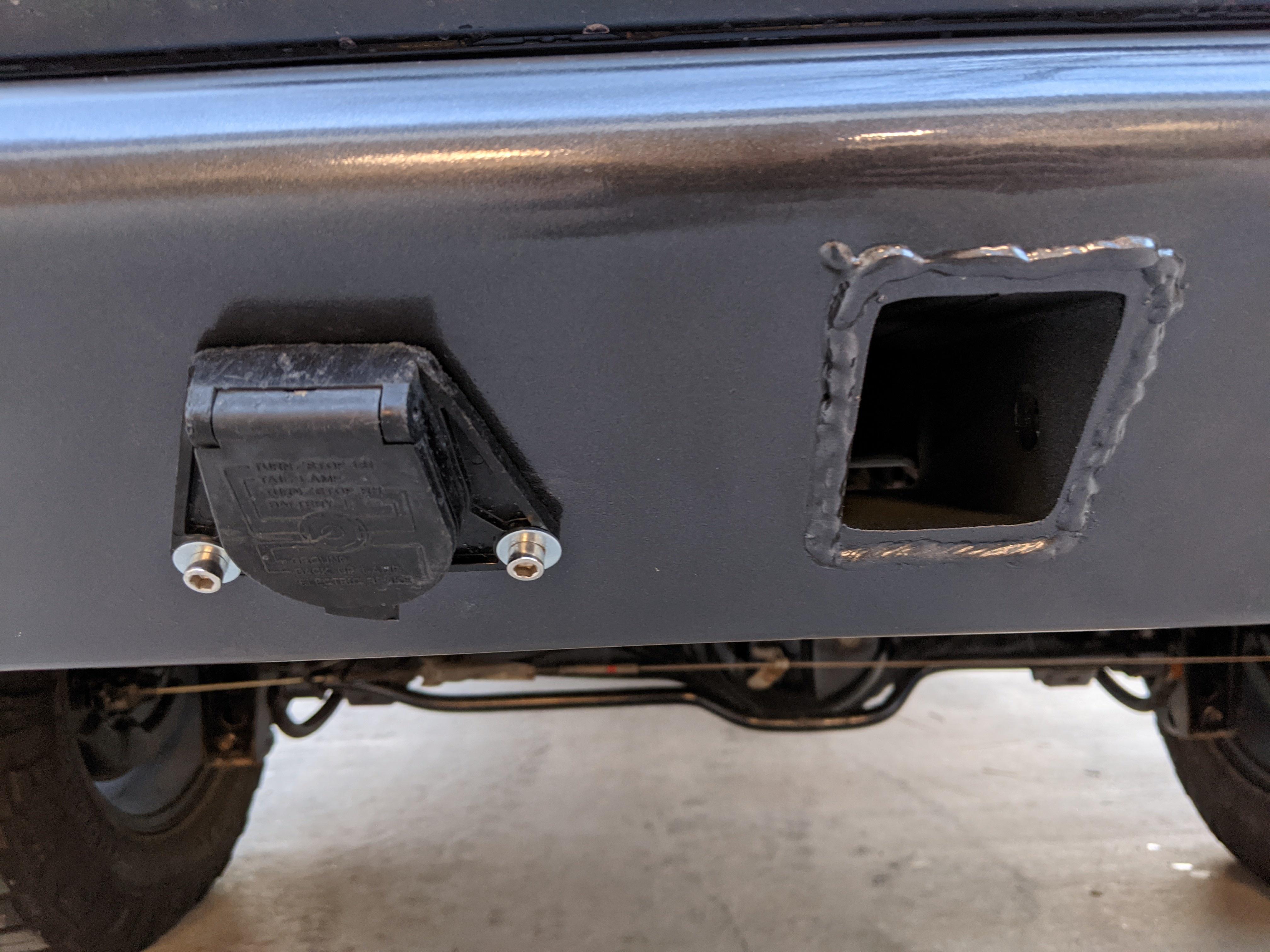
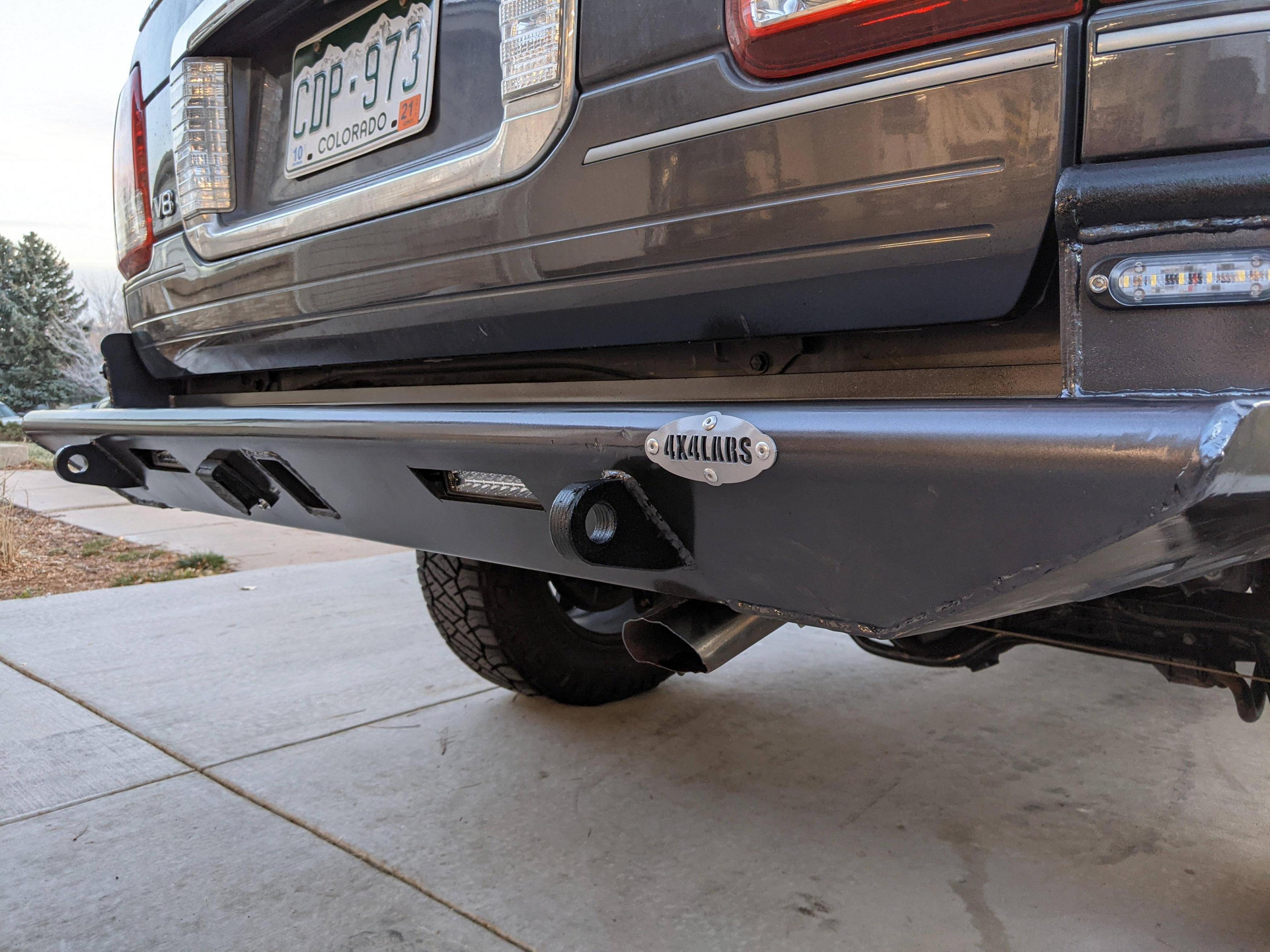
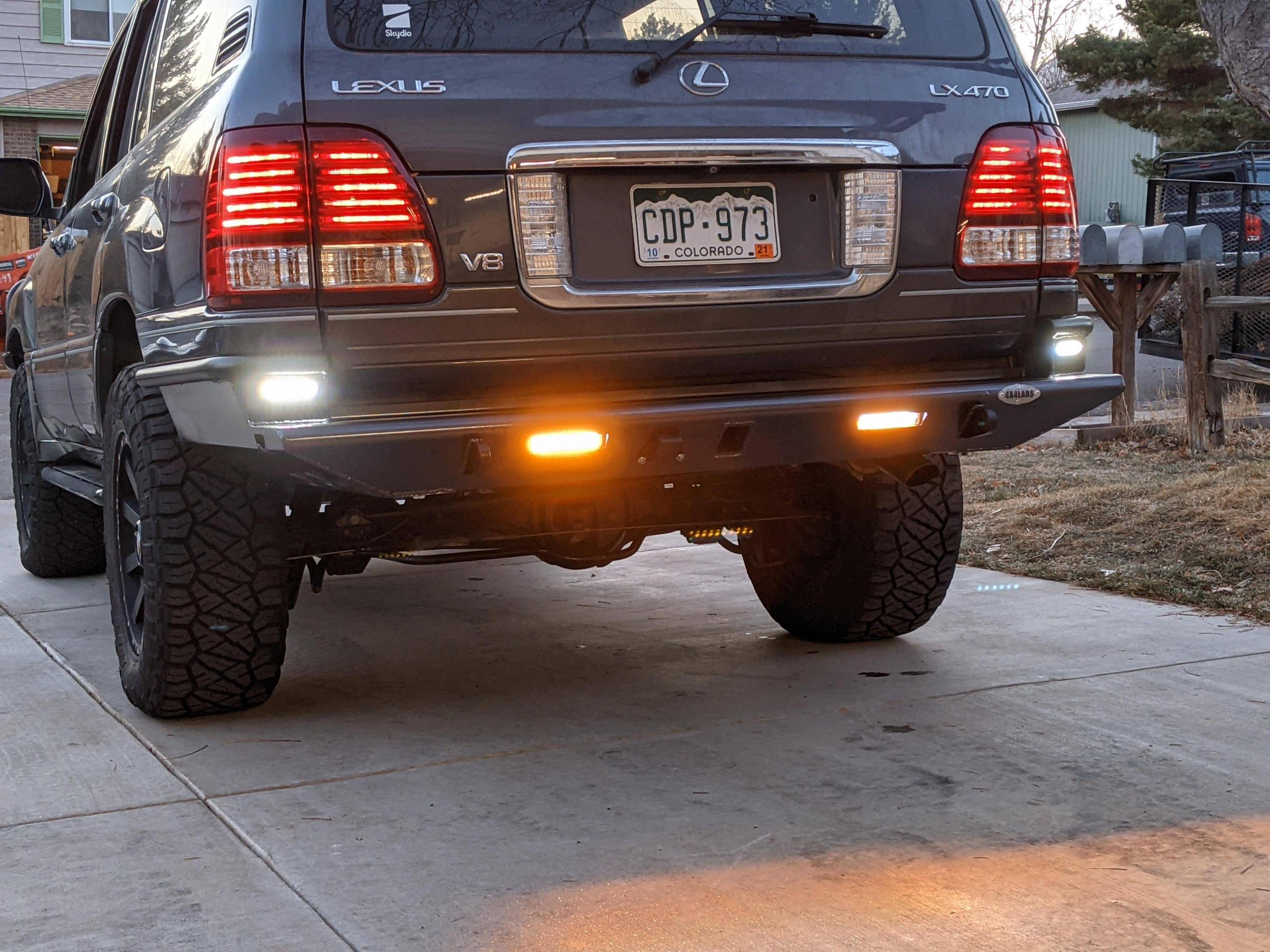
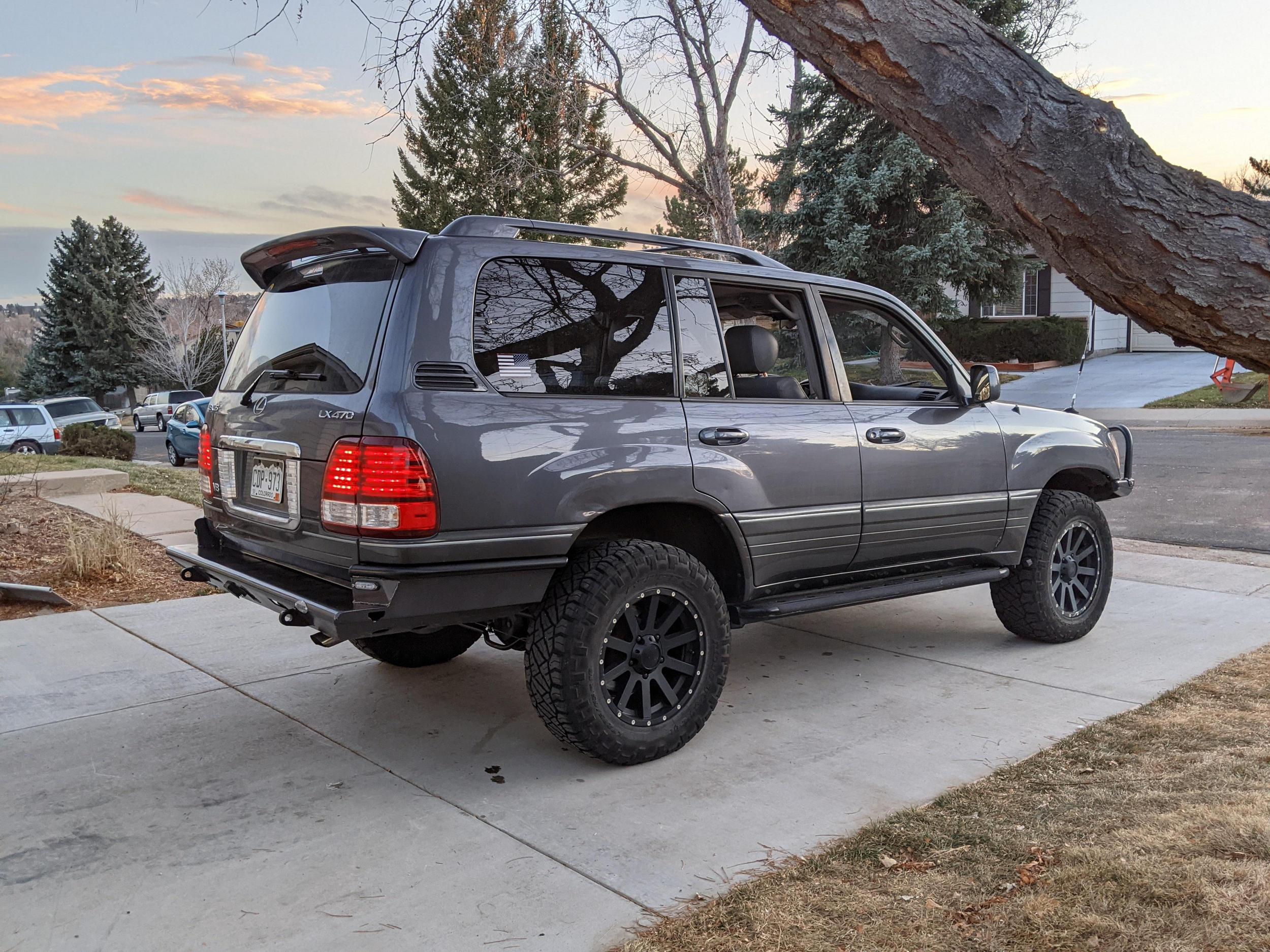
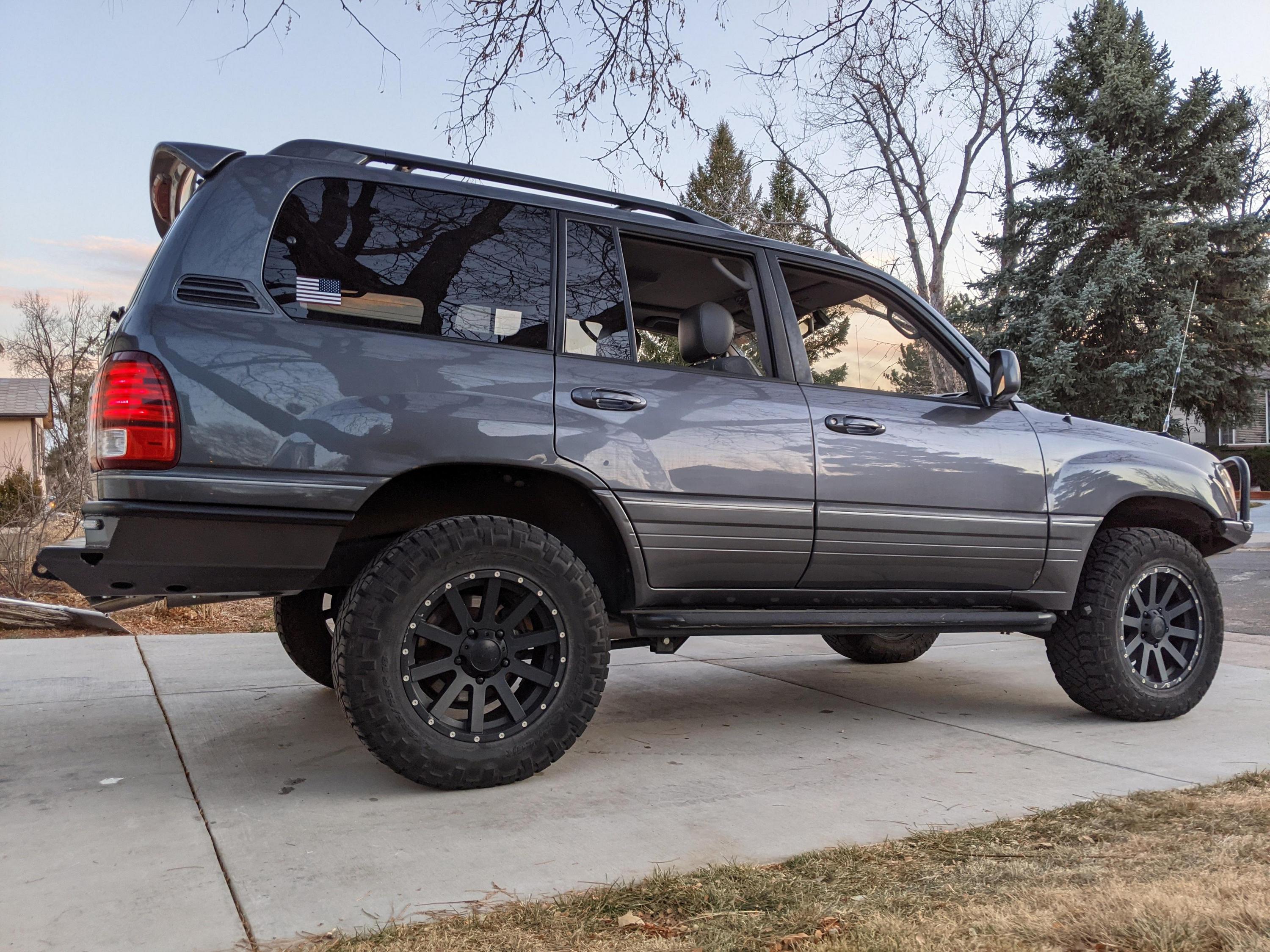
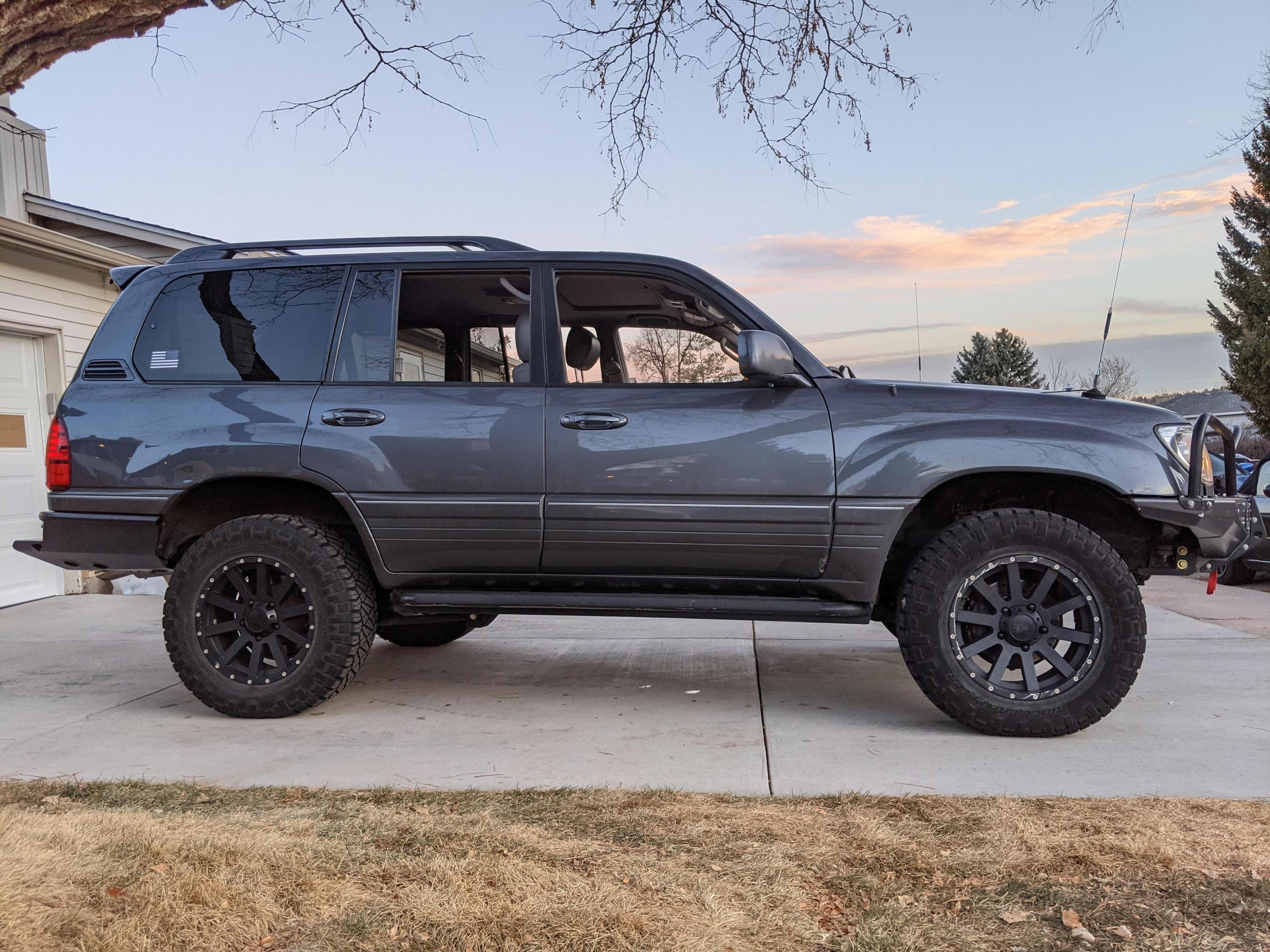
Things I used:
Miller 211 welder: Amazon.com
ColorRite Aerosol Toyota 1E9 Galactic Grey Pearl Metallic + clearcoat: https://amzn.to/3l0num4
Seymour Truck Bed Liner - https://amzn.to/2UWEAH1
Nilight LED Amber+White pod: https://amzn.to/374h8x9
Flat mount LED pod #ad: https://amzn.to/372bM5z
Milwaukee Hole Saw Kit: Amazon.com
FYI the autoparts stores typically rent the tools and I know for a fact O'Reilly's carries the inner tool set #67178. Might help you out.
Ah man, I didn't even look ahead of time. I'd read in one of the threads (I think?) that the stores didn't carry something with the 42mm. Stupid for sure.
awesomeissquid
SILVER Star
Huh, never would have guess that. I decided to forgo inners on mine since I will just get new when I do the steering rack. Maybe you can get lucky and get a tool for the other side.Ah man, I didn't even look ahead of time. I'd read in one of the threads (I think?) that the stores didn't carry something with the 42mm. Stupid for sure.
Finished carpet installation, found some change stuck to the floorboard and received by James Baroud RTT




Hope that’s not a rubberized coating....that’s a rust creator.
Finished up the KISS Drawers

Here you go, obviously this is with halos off.Looks,great. Can you post more pics please (different angles) as I am on the fence on getting a set myself.
Looks great. My new rear bumper comes in next week. Have you thought about doing anything with the low hanging tail pipe? Seems to be the low point still.Finished off my 4x4Labs rear bumper build and damn it looks good! So happy with it! Matches my sliders and front bumper so well. Look at all that clearance!!












Things I used:
Miller 211 welder: Amazon.com
ColorRite Aerosol Toyota 1E9 Galactic Grey Pearl Metallic + clearcoat: https://amzn.to/3l0num4
Seymour Truck Bed Liner - https://amzn.to/2UWEAH1
Nilight LED Amber+White pod: https://amzn.to/374h8x9
Flat mount LED pod #ad: https://amzn.to/372bM5z
Milwaukee Hole Saw Kit: Amazon.com
On my ARB rear bumper, there are a couple of plates either side of the exhaust pipe. Jimmy could weld similar protection on his bumper, although it still looks like the edge of the resonator might be the most vulnerable piece.Looks great. My new rear bumper comes in next week. Have you thought about doing anything with the low hanging tail pipe? Seems to be the low point still.
I did modify it and moved it up a couple of inches. It is way further up than it was stock so I will run it like this and if I smash it then I'll come up with something else.Looks great. My new rear bumper comes in next week. Have you thought about doing anything with the low hanging tail pipe? Seems to be the low point still.
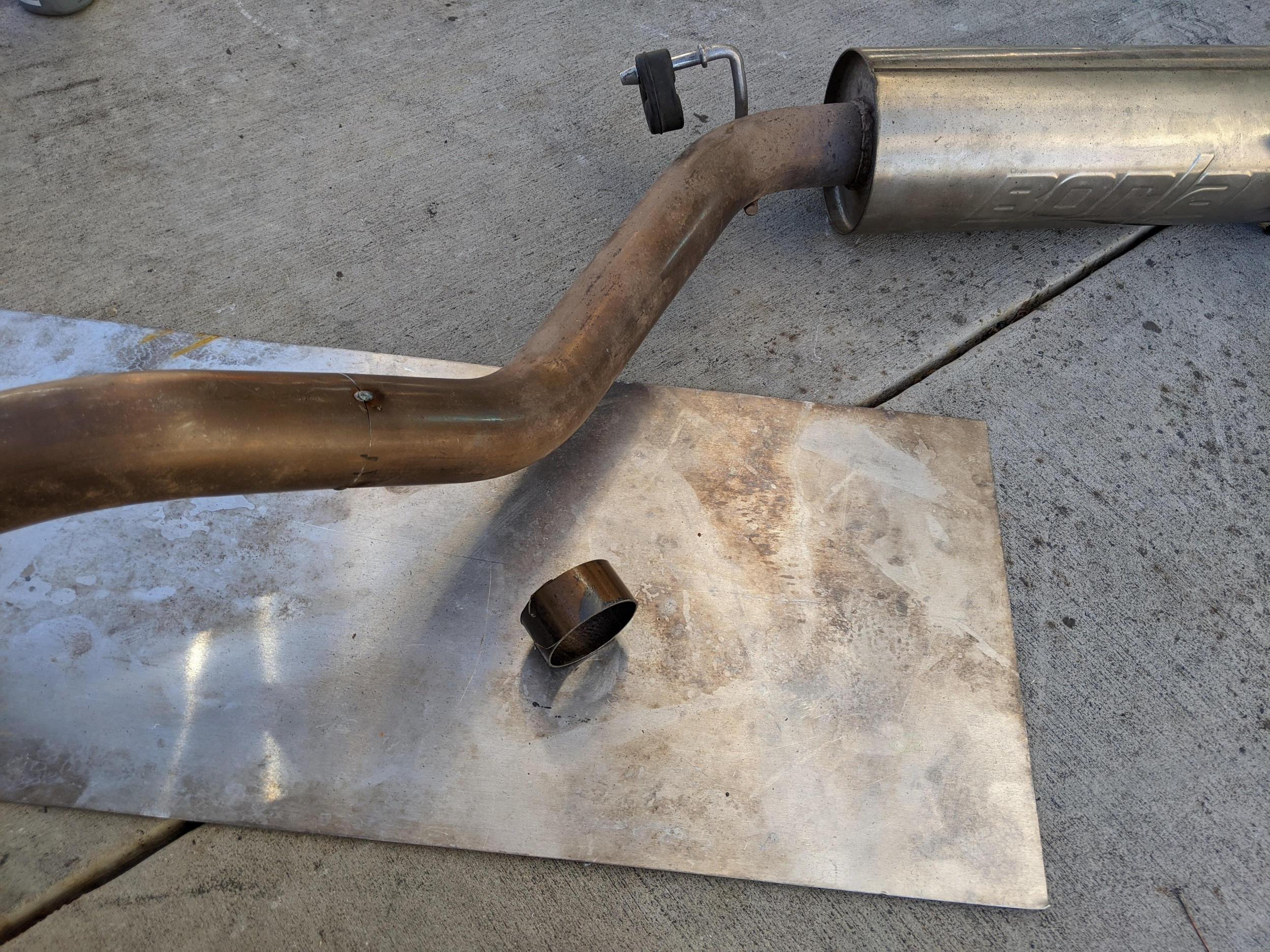
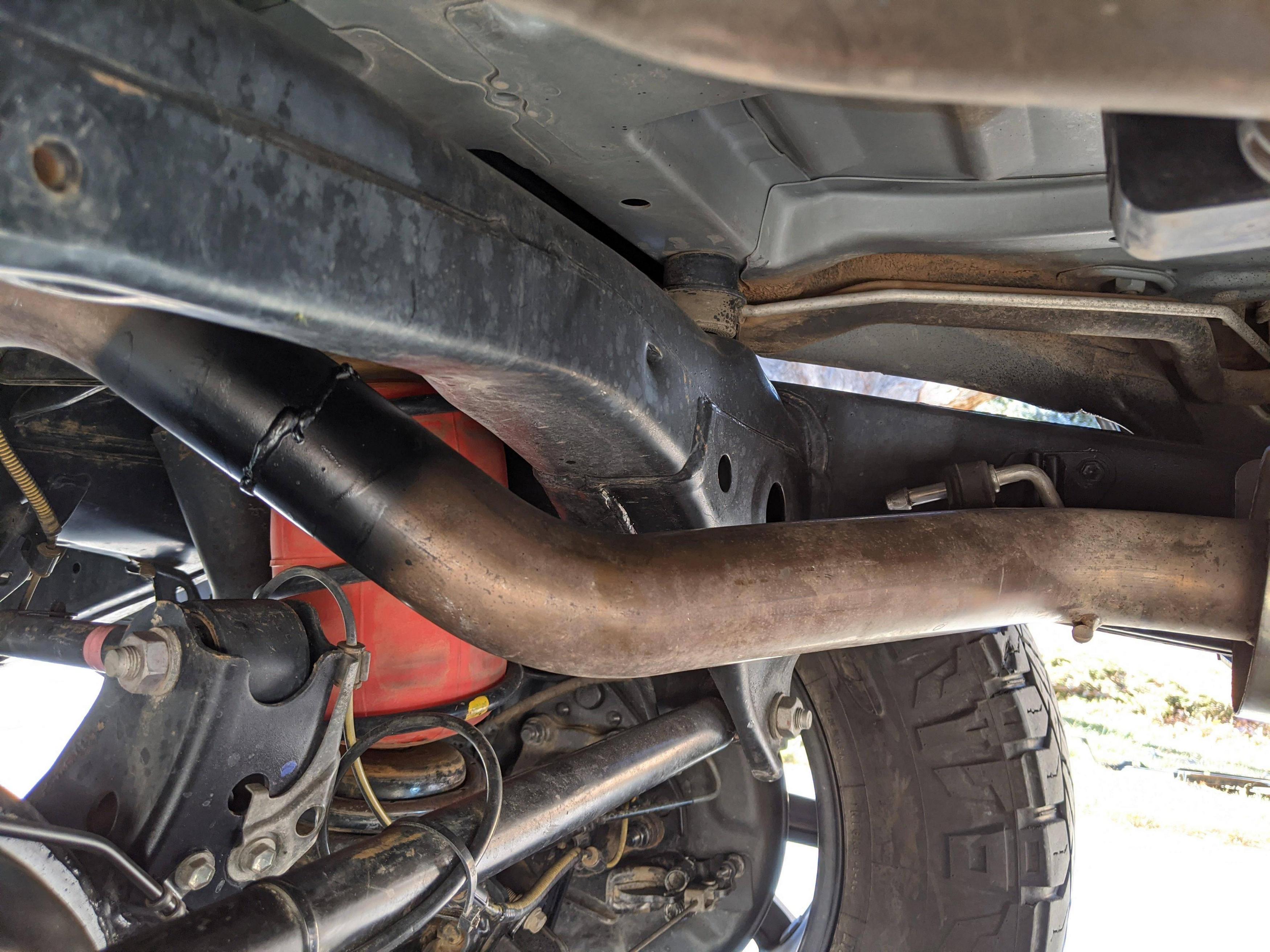
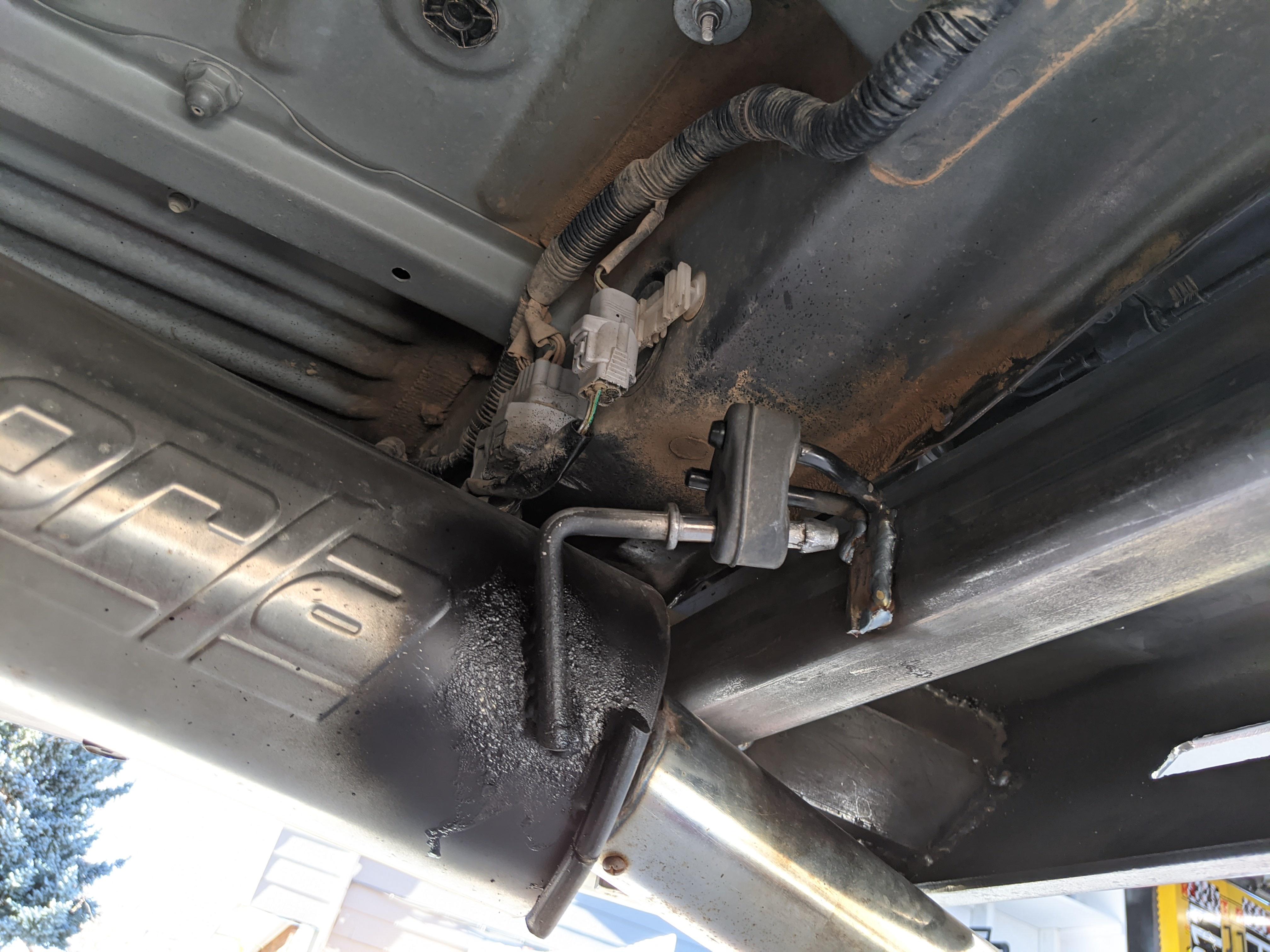
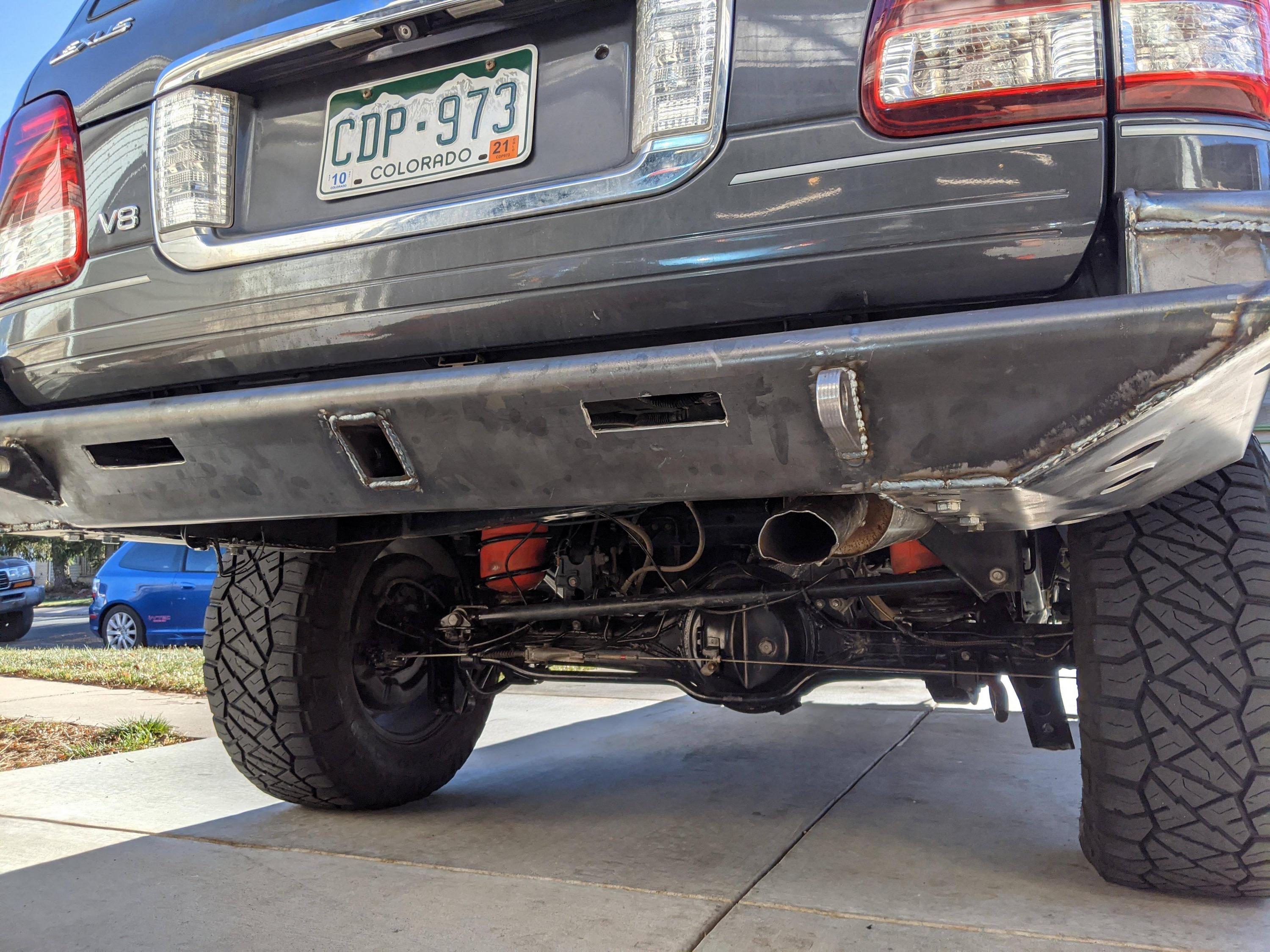
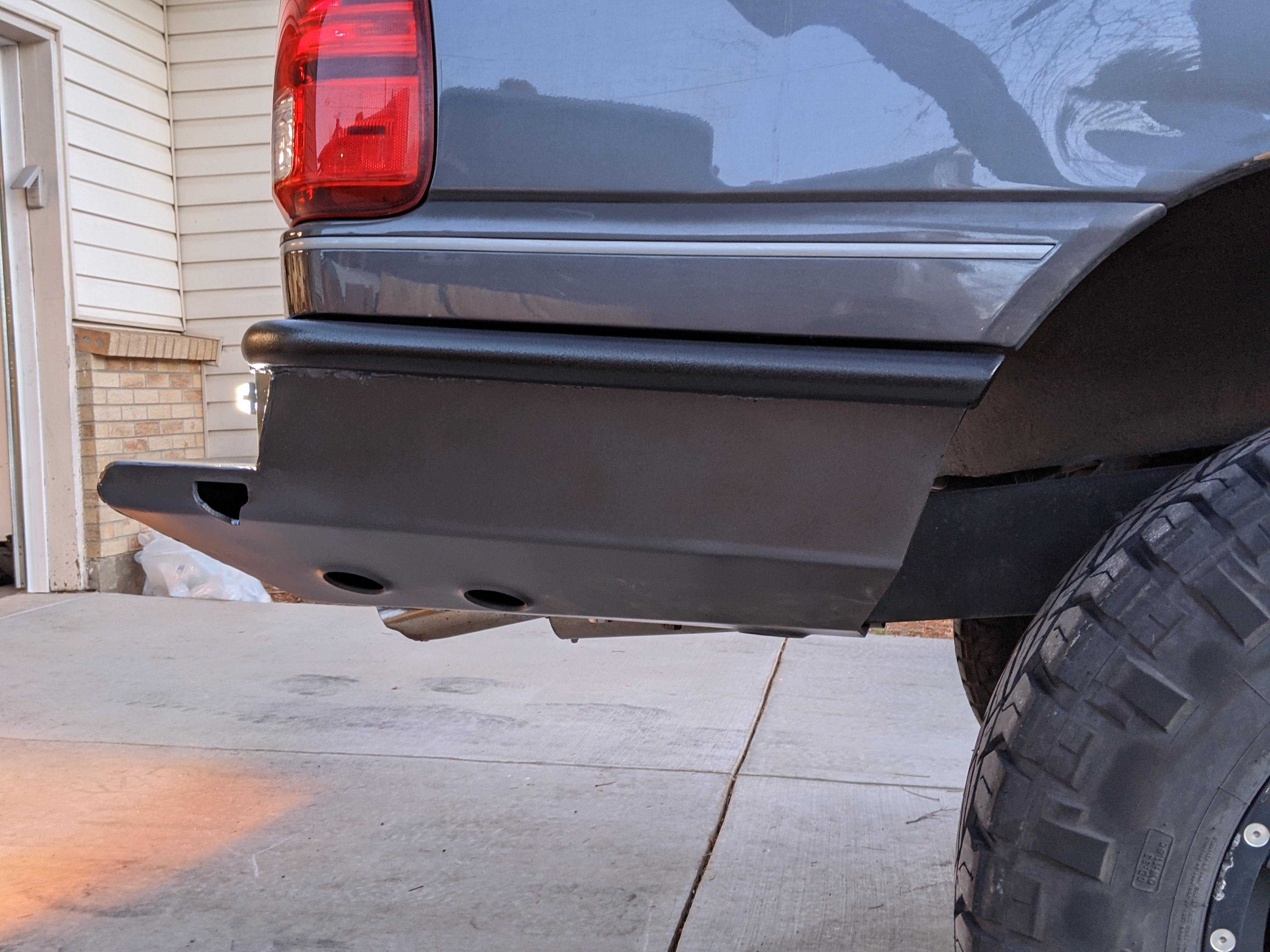
The Borla Exhaust is on sale right now actually: Amazon.com
I guess I don’t understand why higher octane would give a higher fuel mileage. Isn’t a higher octane rating a less combustible fuel to make up for a higher compression engine?
Busy week for the War Wagon.
First, I had a local vinyl and leather repair company fix up some tears in the interior. The P.O. had caused some damage hauling lumber or steel rebar or swords. I didn’t think to take any before pictures but the after photos aren’t bad. He also cleaned up the driver’s bolster, which was pretty worn.



Then I changed the cabin air filters.You wouldn’t believe how dirty those suckers were. Because of the posts on this forum, it was truly a one banana job.
Then the 5 year old interstate battery died, leaving me blocking a neighbors driveway. I really wanted an AGM battery, but I couldn’t find one locally. The Batteries and Bulbs store near me had a 94R/H7 X2 battery in stock, so I bought it against their recommendations. It’s slightly too long for the stock battery tray and too short for the stock bracket. There were a couple 24F batteries at other stores but I wanted more amp hours and was in a hurry. The battery sort of fits but I need to figure out a more secure mounting solution before off-roading.

First, I had a local vinyl and leather repair company fix up some tears in the interior. The P.O. had caused some damage hauling lumber or steel rebar or swords. I didn’t think to take any before pictures but the after photos aren’t bad. He also cleaned up the driver’s bolster, which was pretty worn.
Then I changed the cabin air filters.You wouldn’t believe how dirty those suckers were. Because of the posts on this forum, it was truly a one banana job.
Then the 5 year old interstate battery died, leaving me blocking a neighbors driveway. I really wanted an AGM battery, but I couldn’t find one locally. The Batteries and Bulbs store near me had a 94R/H7 X2 battery in stock, so I bought it against their recommendations. It’s slightly too long for the stock battery tray and too short for the stock bracket. There were a couple 24F batteries at other stores but I wanted more amp hours and was in a hurry. The battery sort of fits but I need to figure out a more secure mounting solution before off-roading.
The theory is that if your engine is running into a situation where it is having to fight detonation by retarding the ignition timing, such as driving up a mountain road with a heavy load, it would benifit from using the higher octane, slower burning fuel, by not having to retard the timing to limit the detonation. Retarding the ignition timing would negatively affect fuel mileage with the lower octane fuel. Using the higher octane fuel in that scenario would maintain "normal", not "better", mileage since no, or at least less, ignition timing change is needed. So they say: "You get better mileage with higher octane fuel". Not really, just normal. You may be getting decreased mileage, however, while using low octane if your engine has detonation issues.I guess I don’t understand why higher octane would give a higher fuel mileage. Isn’t a higher octane rating a less combustible fuel to make up for a higher compression engine?
That said, I've tried them all, low octane, high octane, and non-alcohol rec fuel, and get the exact same mileage with all. I do use higher octane gas whenever I leave flat Florida, though, just to help protect the engine against any possibility of detonation.
Last edited:
The theory is that if your engine is running into a situation where it is having to fight detonation by retarding the ignition timing, such as driving up a mountain road with a heavy load, it would benifit from using the higher octane, slower burning fuel, by not having to retard the timing to limit the detonation. Retarding the ignition timing would negatively affect fuel mileage with the lower octane fuel. Using the higher octane fuel in that scenario would maintain "normal", not "better", mileage since no, or at least less, ignition timing change is needed. So they say: "You get better mileage with higher octane fuel". Not really, just normal. You may be getting decreased mileage, however, while using low octane if your engine has detonation issues.
That said, I've tried them all, low octane, high octane, and non-alcohol rec fuel, and get the exact same mileage with all. I do use higher octane gas whenever I leave flat Florida, though, just to help protect the engine against any possibility of detonation.
For what it’s worth, I’ve been using 87 for years even when I traveled out west where the cruiser have climbed to 13,000ft. Not a single issue with it, I was loaded down pretty good too and at one stretch climbing that i70 Eisenhower tunnel in CO, I was pegged at redline the entire way up. This thing is a beast.
Similar threads
- Replies
- 13
- Views
- 2K
Users who are viewing this thread
Total: 50 (members: 13, guests: 37)
